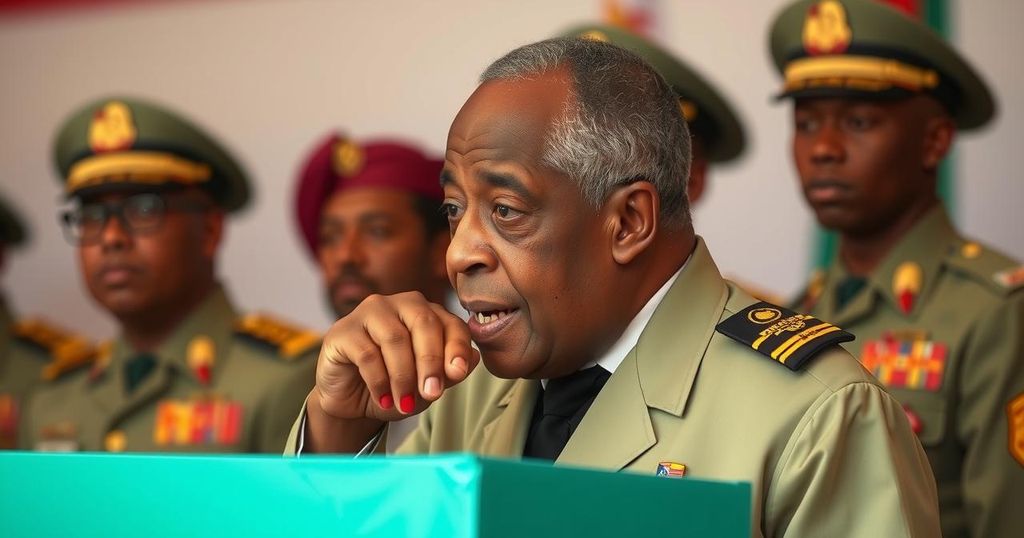Chad Holds General Election After Prolonged Military Rule Amid Low Turnout
Chad staged a general election after three years of military rule, with a low turnout of 38 percent reported amid calls for a boycott from opposition groups. The election aimed to fill positions in parliament, provincial assemblies, and local councils, reflecting the ongoing struggle for a return to democratic governance.
On Sunday, Chad held a general election that the government claims is essential for transitioning away from military governance, which has persisted for three years. Early reports indicated a turnout of merely 38 percent, amidst a call for a boycott by opposition groups. This election was pivotal, allowing citizens to elect representatives for a new parliament, provincial assemblies, and local councils, though low participation rates were anticipated due to widespread disenfranchisement and skepticism regarding the electoral process.
The political landscape in Chad has been marked by significant instability following a military coup three years ago. The interim military government asserts that holding elections represents a crucial move towards restoring civilian rule. However, the opposition’s calls for a boycott underscore deep-seated concerns about the legitimacy of the electoral process and the government’s commitment to genuine democratic reforms. The elections not only hold implications for national governance but also affect local and provincial representation in a nation striving to stabilize its political framework.
In summary, the general election in Chad serves as a critical opportunity for the end of military rule, albeit overshadowed by low voter turnout and opposition discontent. The effectiveness of this electoral exercise in re-establishing civilian governance remains to be seen, particularly in light of the challenges posed by the ongoing political climate and public sentiment towards the current regime.
Original Source: www.themountaineer.com




Post Comment